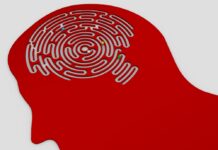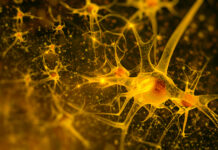Researchers Struggle as Placebos Becoming More Effective & Antipsychotics Losing Power
Since the 1960s, the positive response rates to antipsychotic medications have been dropping steadily, according to a meta-analysis published in JAMA Psychiatry by Columbia...
FDA Warns About New Impulse-Control Problems Associated With Abilify
Yesterday, the US Food and Drug Administration (FDA) released a warning that the antipsychotic drug aripiprazole or Abilify is associated with compulsive and uncontrollable...
Meta-Analysis Ties Gray Matter Loss to Antipsychotic Dose
Antipsychotics are currently the predominant treatment for individuals diagnosed with schizophrenia, but there is an accumulating body of research that links the use of these drugs to structural abnormalities in the brain. A recent meta-analysis suggests that gray matter loss in the brain may depend on the dose and class of the antipsychotic.
“Antipsychotic Use in Youth Without Psychosis: A Double-edged Sword”
This month’s issue of JAMA Psychiatry ran an editorial commenting on recent research revealing that the majority of youth prescribed antipsychotics have not been diagnosed with a mental disorder.
Four Leading Antipsychotics Aren’t Safe or Effective in Older Adults
A 5-year study funded by the National Institute of Mental Health and conducted by U.C. San Diego School of Medicine, Stanford University and the...
Psychiatrists’ Prescriptions for First-time Psychosis Often Don’t Follow Guidelines
"Many patients with first-episode psychosis receive medications that do not comply with recommended guidelines for first-episode treatment," states a National Institute of Mental Health...
Very Slow Taper Best for Antipsychotic Discontinuation
An article in JAMA Psychiatry advises very slow tapering for best results when discontinuing antipsychotic drugs.
Antipsychotics Prescribed Off-Label for Challenging Behaviors
Antipsychotics are being prescribed to people who may have challenging behaviors but no mental disorder, according to new research published in this month’s issue of BMJ. “Excessive use of psychotropic drugs has individual and systemic implications,” the researchers write. “Antipsychotics, in particular, are associated with several adverse side effects that can impair quality of life and lead to deleterious health outcomes.”
Does Longer Duration of Untreated Psychosis Cause Worse Outcomes?
New research counters the long-held assumption that a longer duration of untreated psychosis is associated with worse outcomes.
Discontinuation of Antipsychotics Improves Cognitive Functioning
A study, recently published in Psychological Medicine, examined the cognitive functioning of individuals with schizophrenia who discontinued antipsychotics, and those who maintained their antipsychotic...
Case Studies Reveal Patient Empowerment Through Tapering Antipsychotics
A new study shows how different patients respond to tapering antipsychotic medication under expert guidance, highlighting personal empowerment and the complexities of withdrawal.
Infants Exposed to Psychotropic Drugs During Pregnancy At Risk
New research published in the July issue of The Journal of Clinical Psychiatry found that the use of mood stabilizers, antipsychotics, antidepressants, and hypnotics during pregnancy is associated with increased health risks to the infant.
Medications May Add to Mortality Rate in Schizophrenia
Dutch researchers write in the Journal of Clinical Psychopharmacology that, in a prospective study of 7415 persons with diagnoses of schizophrenia, use of a first-generation...
Industry Corruption in Systematic Review for Injectable Antipsychotics
Researchers highlight how systematic reviews are compromised by pharmaceutical industry ties by exposing a study of injectable antipsychotics.
Psychiatric Drugs, Especially Antipsychotics, Contribute to Increasing Drug Costs
Antipsychotics have overtaken antidepressants as the most costly class of psychiatric medication in England, according to a study by Stephen Ilyas and Joanna Moncrieff...
Tapered Antipsychotic Withdrawal Mitigates Risk of Psychotic Symptoms
Research suggests that slowly tapering off an antipsychotic reduces the risk of withdrawal psychosis compared to abrupt discontinuation.
A History of Rapid Tranquilization
A paper by Joanna Moncrieff and Laura Allison in the journal History of Psychiatry reviews "the theory and practice of emergency sedation for behavioural...
Osteoporosis Associated with Antipsychotic Treatment
Chinese researchers find, in a literature review for the International Journal of Endocrinology find an increased rate of osteoporosis among people with a schizophrenia...
Scant Evidence for Combining Antipsychotics
Researchers in Barcelona, Spain retrospectively reviewed the use of antipsychotics in 117,811 patients, of whom 9,855 were given combinations of antipsychotics and 13,763 were...
Antipsychotics Change the Architecture of the Colon
Researchers in Singapore find that antipsychotic medications are associated with changes to colonic architecture, which could result in difficult colonoscopy and increased colonoscopy-related risks....
Antipsychotics Linked to Increased Breast Cancer Risk
Long-term exposure to prolactin-increasing antipsychotics increases the odds of developing breast cancer.
Antipsychotics Increase Risk of Dementia; New Research Illuminates Why
In JAMA psychiatry, researchers outline new theories connecting antipsychotic use in people with schizophrenia and increased dementia risk.
New Rating Tool for Tapering Antidepressants and Antipsychotics
Researchers developed a rating scale to better assess service users’ experiences tapering antidepressant and/or antipsychotic medication.
Effort to Tackle Overuse of Antipsychotics in Older Adults Backfires
A partnership designed to decrease antipsychotic use in elderly patients may have led to increased use of medications with even worse risk/benefit profiles.
Nonwhites Twice as Likely to Receive Injectable Antipsychotics
Research published in the Journal of Clinical Psychiatry shows that of all 901 patients diagnosed with schizophrenia from July 2009 to June 2010 at a...



















